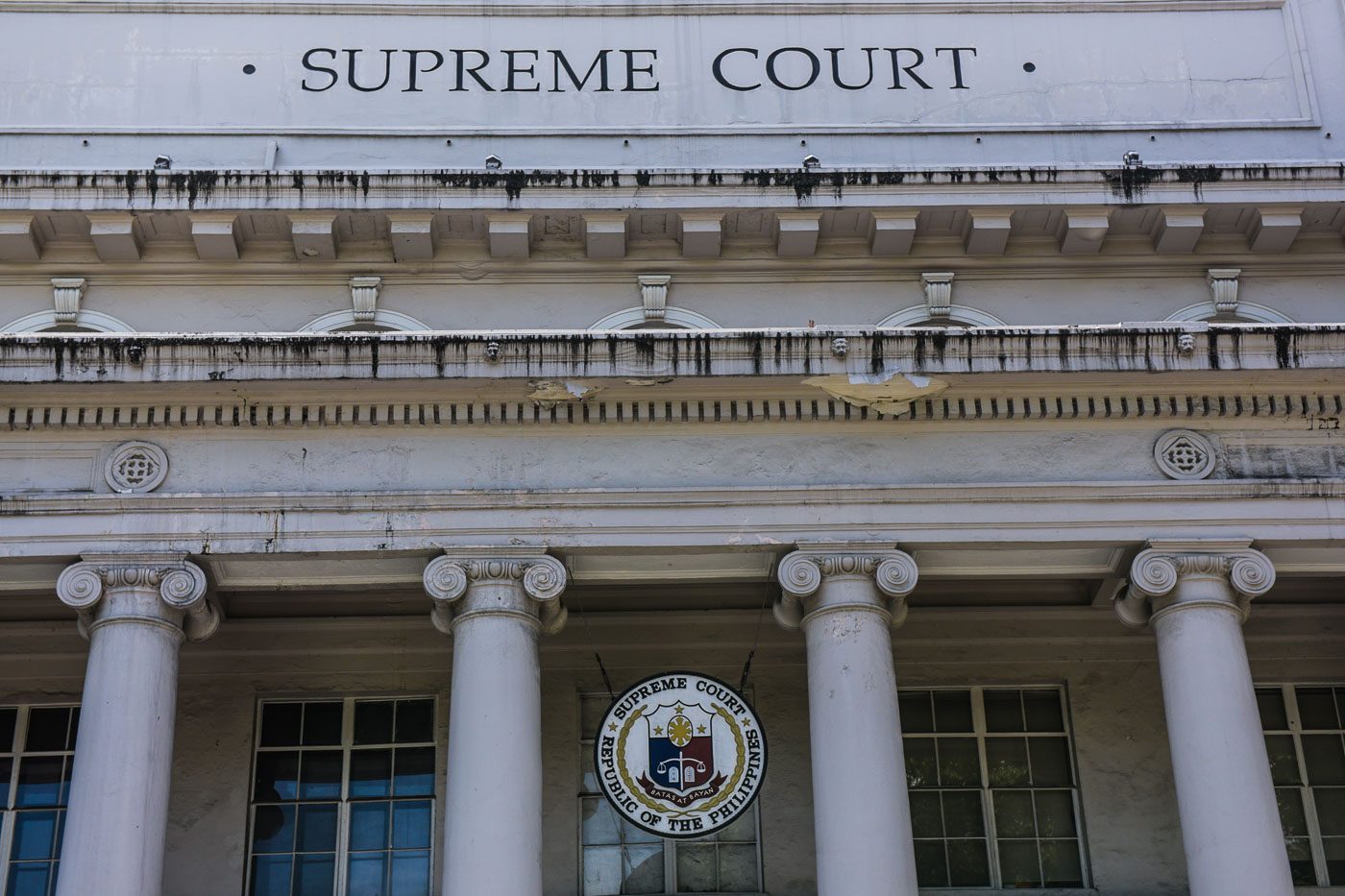SUMMARY
This is AI generated summarization, which may have errors. For context, always refer to the full article.

MANILA, Philippines (UPDATED) – Oral arguments on the Philippines’ withdrawal from the International Criminal Court (ICC) are scheduled for Tuesday afternoon, August 28, with Teresita Leonardo de Castro presiding on her first official day as Chief Justice.
The oral arguments will focus on a petition filed last May by minority senators challenging the validity of the Philippines’ withdrawal from the International Criminal Court (ICC). They argued that the withdrawal required concurrence from the Senate by a two-thirds vote.
President Rodrigo Duterte in March ordered our withdrawal from the ICC after it announced it would launch preliminary examinations into alleged mass murder in the government’s violent campaign against drugs.
The oral arguments are pushing through after 3 previous postponements – on July 24, August 7, and August 14
Arguments
Duterte’s withdrawal from the ICC was his response to the preliminary examinations launched by Prosecutor Fatou Bensouda on his war against drugs that has killed thousands since he became president. (READ: IN NUMBERS: The Philippines’ ‘war on drugs’)
Human rights advocates claim there have been over 12,000 killed. The police have downplayed the numbers, with the Philippine Drug Enforcement Agency (PDEA) saying the campaign has claimed at least 4,000 lives since it was launched on July 1, 2016, up until just March 20, 2018.
Among other justifications, Duterte said the ICC’s Bensouda violated the principle of complementarity. The principle of complementarity means that the ICC cannot have jurisdiction over the war on drugs, if the Philippine justice system can investigate it on its own.
Presidential Spokesperson Harry Roque is adamant about the Philippine justice system working in this aspect.
Whether or not the justice system is working is also a question that the Supreme Court is in a very good position to answer. The justices possess thousands of drug war documents to help them with that.
In April, the SC said in a resolution that the thousands of deaths in the drug war “may lead to the inference that these are state-sponsored killings.”
References to the war on drugs, whether coming from Malacañang’s side or the justices during oral arguments will be worth watching. (READ: ICC’s track record and what it means for Duterte and the PH)
Cheat sheet
Here are the main issues raised in the petitions filed by opposition senators and the Philippine Coalition for the ICC or PCICC.
- Does Duterte need the concurrence of the Senate to withdraw from the ICC? Is the silence of the Constitution on this issue enough reason for Duterte to unilaterally decide?
- Did Duterte violate Section 2, Article II of the Constitution which said the Philippines adopts the generally accepted principles of international law?
- Was the Rome Statute invalid because it was never published on the Official Gazette or any newspaper of wide circulation? (It was the Rome Statute that created the ICC.)
- And finally, are Bensouda’s preliminary examinations a violation of the principle of complementarity, or do our laws allow her to launch such an inquiry?
The PCICC said Section 17 of Republic Act 9851 or the International Humanitarian Law sanctions Bensouda’s act:
“In the interest of justice, the relevant Philippine authorities may dispense with the investigation or prosecution of a crime punishable under this Act if another court or international tribunal is already conducting the investigation or undertaking the prosecution of such crime. Instead, the authorities may surrender or extradite suspected or accused persons in the Philippines to the appropriate international court, if any, or to another State pursuant to the applicable extradition laws and treaties.”
De Castro presiding
Critics who say De Castro’s appointment is a reward by Duterte should listen to her line of questioning and assess where and how she stands.
EARLIER TODAY: Newly-appointed Chief Justice Teresita J. Leonardo-De Castro arrives at the Supreme Court at 8:15AM. (Photos by FS Gutierrez, SC PIO) She has not yet taken her oath pending official transmittal of the appointment papers from the Office of the President. pic.twitter.com/uQeOKyigz8
— Supreme Court PIO (@SCPh_PIO) August 28, 2018
There is also talk of a potential chief justice nomination for Senior Associate Justice Antonio Carpio when De Castro retires in October.
Carpio and President Rodrigo Duterte clash on a fundamental policy on China, and it was Carpio who first compelled the government to provide the Court its drug war documents despite contention from the Solicitor General.
Malacañang might be listening intently to Carpio on where he stands on the administration’s policies.
Not keen lawyers
Lawyers who want to keep the Philippines as a member of the International Criminal Court (ICC) are actually not so keen on having the oral arguments at the Supreme Court (SC).
They want the same thing that the petitioners want: to reverse President Duterte’s withdrawal from the ICC, but feel it’s a huge gamble to go to the High Court.
“There is a certain risk in bringing it to the SC given the political atmosphere where the SC is operating now,” said Human Rights Commissioner Roberto Cadiz, referring to Duterte’s winning streak at the High Court.
As it stands, the Rome Statute states that all proceedings that started before a member’s withdrawal shall be valid even after the country pulls out.
Now, the door is open for the SC to declare the Rome Statute invalid from the very beginning and the legality of the ongoing ICC preliminary examinations into Duterte’s war on drugs will be put in question.
The oral arguments start at 2:30 pm. – Rappler.com
Read related stories:
Add a comment
How does this make you feel?
There are no comments yet. Add your comment to start the conversation.